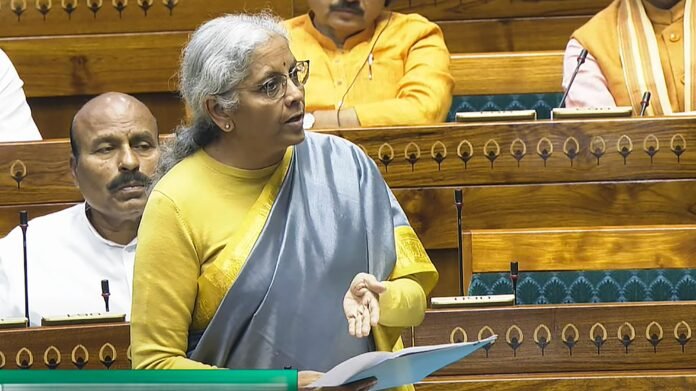In a definitive statement that puts an end to months of speculation, Finance Minister Nirmala Sitaraman has confirmed that the central government has no proposal to restore the Old Pension Scheme (OPS) for employees. Speaking in the Lok Sabha, she emphasized that OPS is not financially sustainable and that the government is instead promoting the new Unified Pension Scheme (UPS) under the existing National Pension System (NPS).
The Background of the Pension Debate
The Old Pension Scheme, often referred to as OPS, was widely appreciated by government employees because it guaranteed 50% of the last drawn salary as pension. This defined-benefit structure provided a sense of security but became a growing financial burden on the exchequer. By 2004, OPS was discontinued and replaced with the National Pension System (NPS), which is based on contributions from both employees and the government.
However, NPS ties pension amounts to market performance, creating concerns about the lack of guaranteed security. Many employees and unions have been demanding a return to OPS, arguing that it ensures dignity in retirement. Against this backdrop, Nirmala Sitaraman was expected to clarify the government’s position, and she has now given a decisive answer.
What Nirmala Sitaraman Said in Parliament
During the recent session of Parliament, Nirmala Sitaraman was asked about the possibility of bringing back OPS. She firmly stated that the government has no such proposal under consideration. She explained that while the concerns of employees are understandable, OPS would impose unmanageable fiscal liabilities on the government in the long run.
Instead, she highlighted the introduction of the Unified Pension Scheme (UPS). This scheme is designed to provide a more balanced approach—offering defined benefits similar to OPS, but within a framework that ensures fiscal discipline and sustainability. According to Nirmala Sitaraman, UPS is the future of pension security in India.

Key Features of the Unified Pension Scheme
The UPS is structured to combine the benefits of both OPS and NPS:
- Employees completing 25 years of service will be eligible for a pension equivalent to 50% of their last drawn salary.
- Those with fewer years of service will receive proportionate benefits, ensuring that every employee gets some level of security.
- In cases of death in service or medical invalidation, the scheme aligns with existing pension rules to support employees’ families.
- Contributions remain part of the system, ensuring that the government does not carry unlimited liabilities.
By creating this hybrid structure, Nirmala Sitaraman believes that the UPS will offer a fair compromise between guaranteed security and fiscal prudence.
Why the Government Rejects OPS
The main reason behind rejecting OPS is its financial unsustainability. Under OPS, pensions were funded entirely by the government without any contribution-based pool. As life expectancy rises and the number of retirees grows, this structure becomes unsustainable.
Nirmala Sitaraman stressed that reverting to OPS would place an enormous burden on taxpayers and public finances, making it difficult for the government to allocate funds for development, infrastructure, and social welfare.
Employee Response and Concerns
Despite the introduction of UPS, employee associations continue to demand OPS. Many argue that market-linked pensions under NPS create uncertainty, and UPS may not fully resolve their concerns. Early data also shows low enrollment numbers in UPS, with only a small fraction of eligible employees opting for it by the initial deadline.
Recognizing this hesitation, Nirmala Sitaraman extended the deadline for UPS enrollment. She has also reassured employees that the government is open to refining the scheme to address practical challenges.

Political and Economic Implications
The decision by Nirmala Sitaraman has political as well as economic dimensions. While some state governments like Rajasthan and Chhattisgarh have reverted to OPS at the state level, the central government’s firm stand indicates that it prioritizes fiscal stability over populist measures.
Economists have supported her position, warning that OPS could lead to a massive increase in unfunded liabilities, which would jeopardize India’s economic growth and fiscal health. At the same time, critics argue that the government needs to do more to build trust in UPS and ensure that employees feel secure.
The message from Nirmala Sitaraman is unambiguous—OPS will not be restored, and India’s future lies in contribution-based systems like NPS and UPS. While this stance may disappoint many employees, the government’s focus remains on balancing fiscal responsibility with social welfare.
The challenge ahead will be to ensure that UPS gains acceptance and delivers on its promise of security. With Nirmala Sitaraman at the forefront of India’s pension reforms, the coming years will be crucial in determining whether UPS can truly replace OPS as the trusted model for government employees.
ALSO READ: Historical Reminder: Indian Army Shares 1971 Newspaper Clip on U.S. Support for Pakistan’s Genocide












